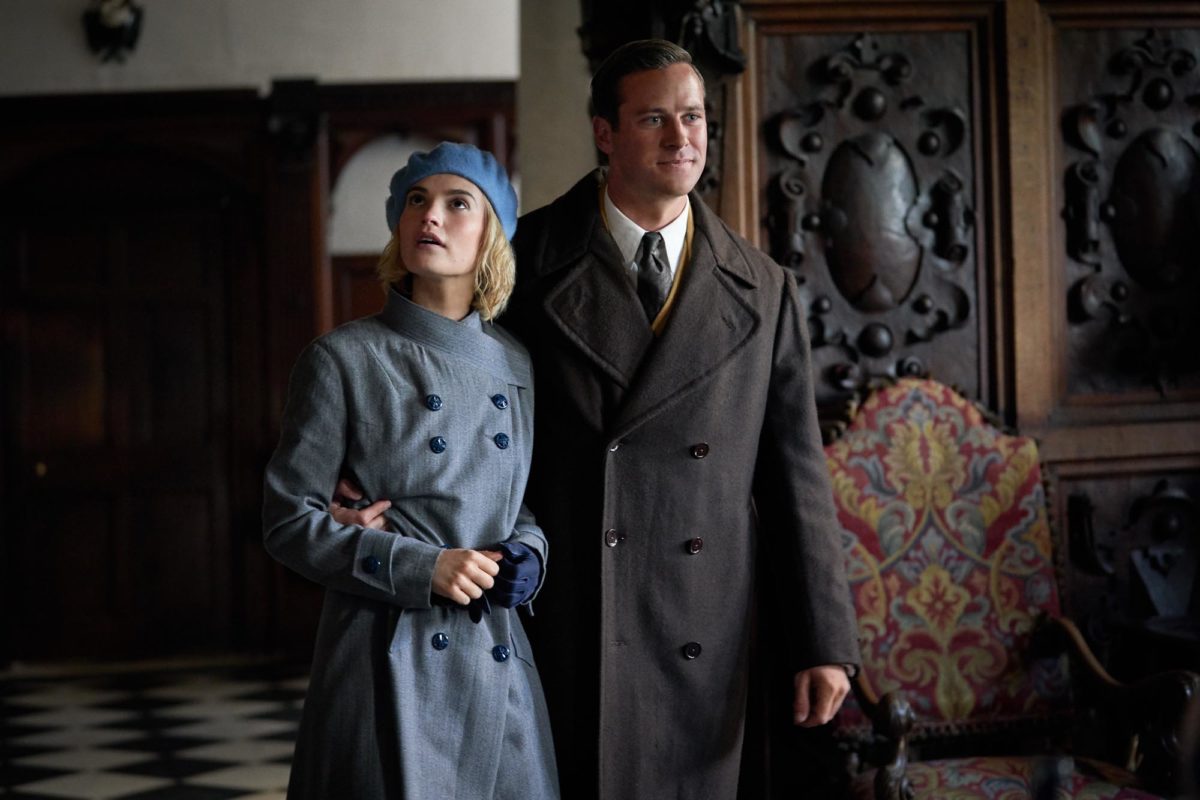By Laurie Coker
Rating: C
There is wonder in the escapism of classic literature. I love the beauty of a well-filmed period piece. Based on the riveting 1938 Daphne Du Maurier novel, director Ben Wheatley presents a tale of love and secrecy set against the backdrop of breathtaking Hartland Quay in Devon and Hatfield House at Cranborne Manor in Dorset, England. Rebecca stars Lily James and Armie Hammer and the film’s imagery is as beautiful as the couple, but direction and pacing doesn’t always measure up.
James plays Mrs. De Winter, a lady servant to an obnoxious woman with no redeeming qualities. She appears trapped in an endless loop of caring for and being berated by Mrs. Van Hopper (Ann Dowd) until she meets the dashing Maxim de Winter (Hammer), a wealthy widow, who sweeps her off her feet. The couple marries and travels back to his ominous, seaside estate Manderley, run by a Nurse Ratched-type house manager, Ms. Danvers (Kristin Scott Thomas). Soon after her arrival, the new Mrs. De Winter realizes her predecessor casts a long and eerie shadow over the estate. Was Rebecca’s death at sea suicide, accident, or murder?
From Du Maurier’s pages, the story reads far more interestingly that does Wheatley’s telling. Adapted by Jane Goldman, Joe Shrapnel, and Anna Waterhouse the story, meant to be captivating and suspenseful, plods along at a sleepwalker’s pace, and Hammer’s Maxim is reduced to a brooding set piece. Still, there’s a raw honesty to the lead performances and Scott Thomas oozes distaste and disgust at Rebecca’s replacement. Frustratingly, little is left to intrigue and imagination. The interactions between the pair fall flat making issues with their relationship uninteresting and obvious. James is appropriately mousy, but not enough happens when she called to take charge and stand her ground to prove or support the transition.
While Rebecca certainly sets the scene for a late 30’s storyline, the writers seem to have pulled out all the elements that would have made the tale even more risqué and shocking for the times and now. Maxim marries far below him and while wooing his second bride, he calls her a “a little fool”, but their difference in status never comes into play. Instead the focus is on the unseen Rebecca and her specter haunting the halls of Manderley and an obscure plot that never surprises.
The first adaptation of Rebecca belongs to Alfred Hitchcock, whose iconic 1940 film, which garnered him his only Best Picture Oscar, stands as the decisive take on Du Maurier’s gothic romance and it, like the character Rebecca, shadows Wheatley’s version. Were it not for the cast and the exceptional sets and costuming, Rebecca (2020) would be a complete wash. It manages to hang on with its visual attractiveness and stunning scenery. These are gorgeous period details and an inkling of an eerie atmosphere that please just enough. Rebecca earns a C in the grade book.
